Tired of grabbing those flimsy plastic bags for every fruit and veggie? They pile up fast, creating waste. Using reusable mesh produce bags seems like a smart swap, but are they really the perfect solution?
Mesh produce bags offer great benefits like reducing plastic waste because they’re reusable, and their breathable material often helps keep produce fresh. However, they need regular washing, might not be ideal for all types of produce, and their true eco-friendliness varies based on the material used.
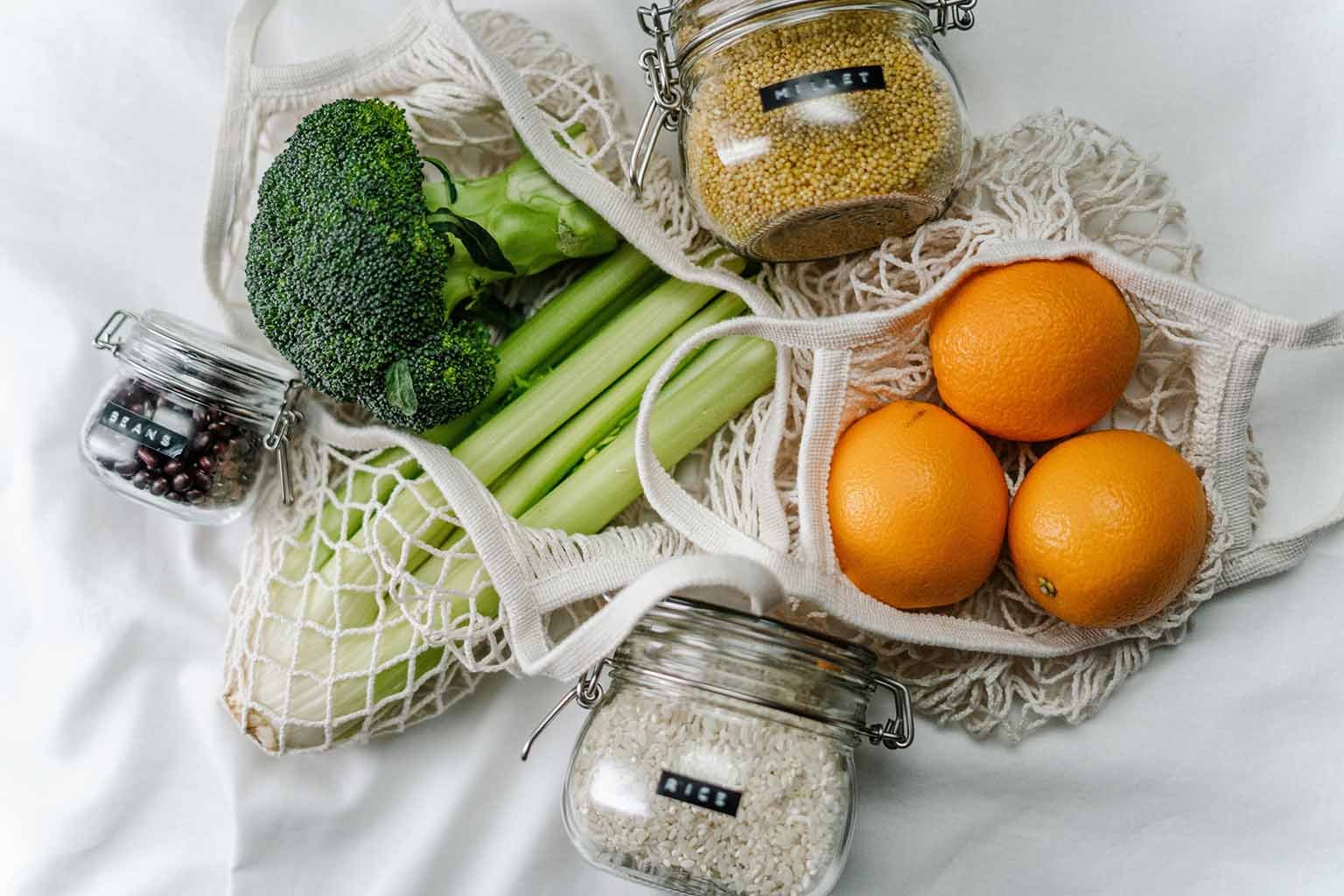
Mesh produce bags are popping up everywhere, from farmer’s markets to big grocery stores. I see them becoming really popular, and clients often ask me about the details when ordering custom ones. It makes sense people have questions – switching habits means figuring out the real pros and cons. Let’s dive into some common questions I hear to understand these bags better.
Are mesh produce bags truly eco-friendly?
You want to make choices that are better for the environment. But sometimes it’s hard to know what’s truly "green." Let’s take a closer look at whether mesh produce bags really help the planet.
Yes, primarily because they replace single-use plastic bags, cutting down landfill waste significantly. Their eco-friendliness really depends on the material – like cotton versus polyester – and crucially, how many times you reuse them. Durability and long-term use are key factors.
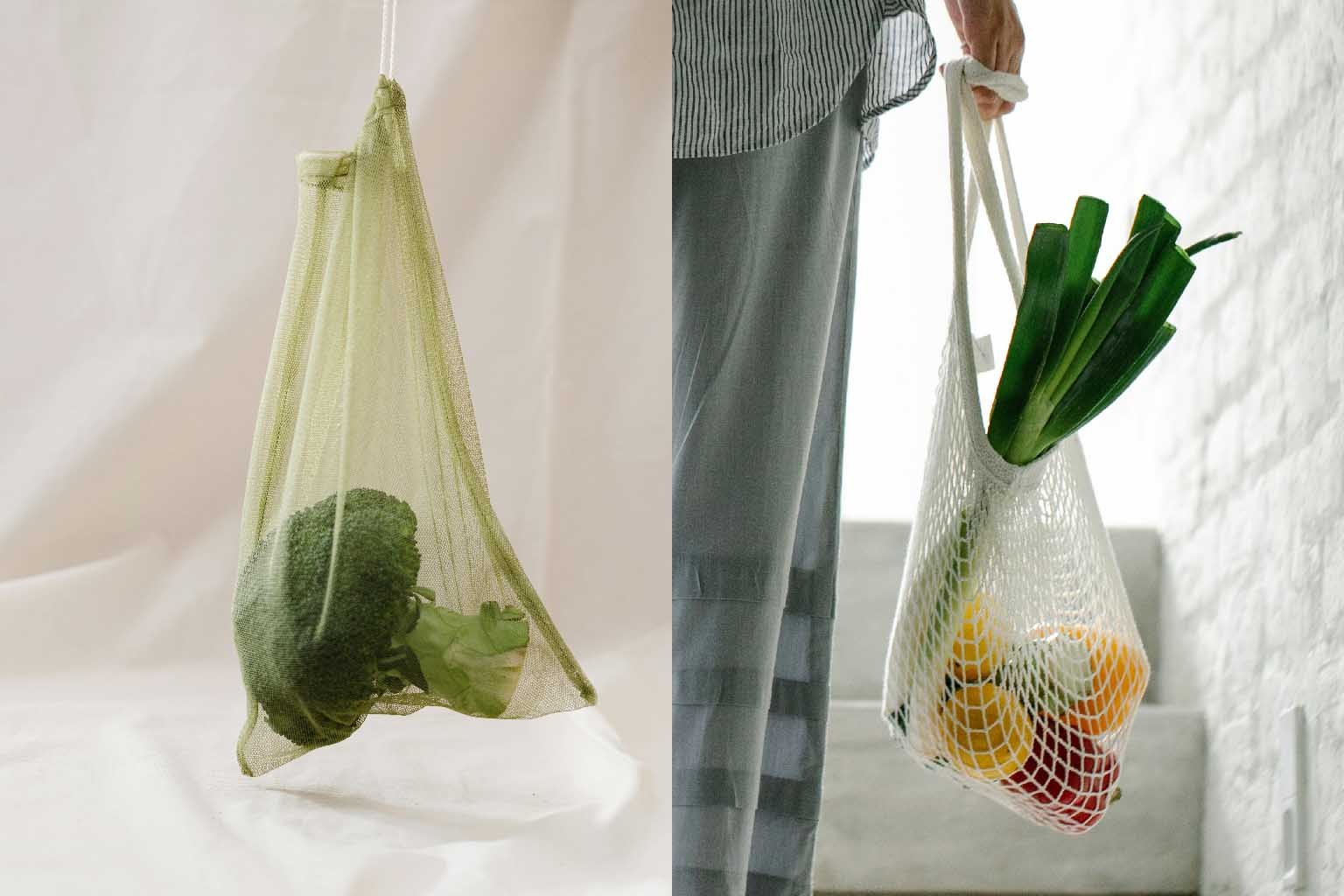
When we talk about being eco-friendly, the biggest win for mesh bags is reusability. Every time you use a mesh bag instead of a plastic one, that’s one less piece of plastic potentially polluting our environment. But the material matters a lot, something I discuss frequently with clients.
Material Matters: Cotton vs. Polyester
Polyester mesh1 is common. It’s durable, lightweight, washable, and generally less expensive. This makes it a practical choice for many. However, polyester is a plastic derived from fossil fuels. Its production isn’t inherently green, and it doesn’t biodegrade easily.
Cotton mesh, especially organic cotton, feels more natural and comes from a renewable resource. It’s biodegradable under the right conditions. But, cotton farming (even organic) uses significant water resources. Cotton bags might also be less durable than polyester over the long haul and can shrink if washed improperly.
Here’s a quick comparison:
| Feature | Polyester Mesh | Cotton Mesh (Organic) |
|---|---|---|
| Source | Fossil Fuels (Plastic) | Plant-Based (Renewable) |
| Durability | Generally High | Moderate (Can wear out) |
| Washability | Easy, often machine dryable | Gentle wash, air dry often |
| Cost | Lower | Higher |
| End-of-Life | Landfill (Non-biodegradable) | Biodegradable (Conditions) |
| Eco-Impact | Reduces plastic bag use | Reduces plastic use, Renewable resource, higher water use in farming |
Ultimately, the most eco-friendly bag is the one you use hundreds of times. Choosing durable construction (like reinforced edging on drawstrings, which is a common request) helps extend the bag’s life, maximizing its positive impact regardless of material.
Do mesh bags actually keep produce fresh longer?
It’s frustrating when your fresh produce goes bad quickly. Plastic bags often seem to trap moisture, making things worse. Mesh bags promise better airflow, but does that always mean longer-lasting fruits and veggies?
Often, yes. The mesh allows air circulation, preventing moisture buildup that causes mold on items like apples, oranges, potatoes, and onions. But, for delicate items like leafy greens or herbs that need humidity, mesh bags might cause them to wilt faster.
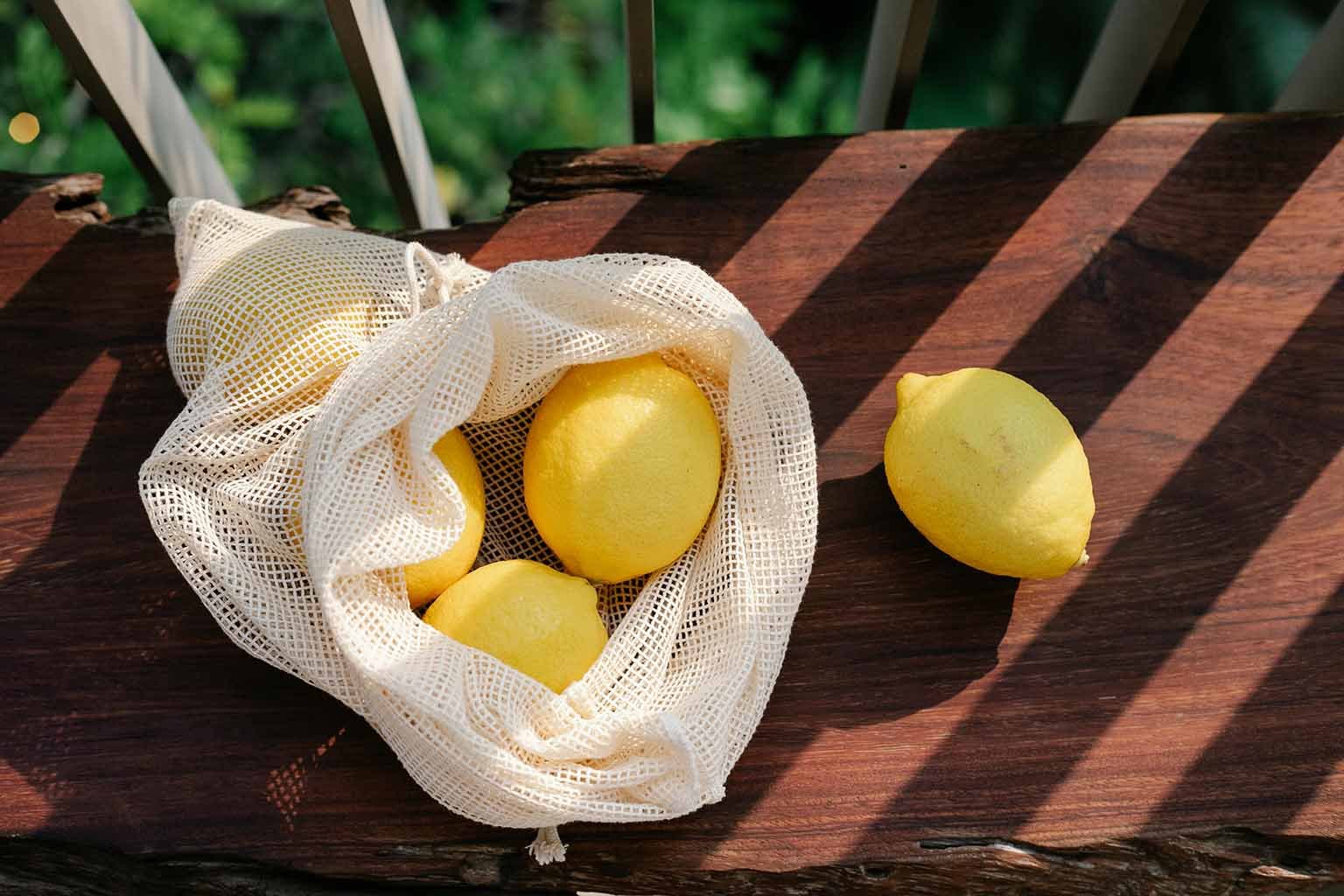
![]()
The breathability of mesh is its main advantage for produce storage. Many fruits and vegetables release ethylene gas2 as they ripen, and trapped gas (like in a plastic bag) can speed up spoilage for some items. Mesh lets this gas escape and allows air to circulate. This is great for things that prefer dry conditions.
Produce That Loves Mesh Bags
- Root Vegetables: Potatoes, onions, garlic benefit from airflow to prevent sprouting and rot.
- Thick-Skinned Fruits: Apples, oranges, avocados, lemons, limes stay fresher with good circulation.
- Hardy Vegetables: Bell peppers, cucumbers, zucchini, broccoli, cauliflower often do well.
Produce That Needs Extra Care
- Leafy Greens: Spinach, lettuce, kale need moisture. They can wilt quickly in a breathable mesh bag alone. Tip: You can store greens in a slightly damp cloth inside the mesh bag, or use a dedicated container.
- Delicate Herbs: Basil, cilantro, parsley are similar to leafy greens and need humidity.
- Berries: While mesh provides airflow, berries are delicate and might get crushed easily. Store them carefully.
Some clients request hybrid bags – maybe cotton on the bottom half and mesh on the top. This design offers a bit more structure and protection while still allowing some visibility and airflow, which can be a good compromise for certain items. The key is knowing which produce does best with simple airflow and which needs a bit more moisture retention.
How easy is it to wash and maintain mesh bags?
Using reusable bags means they will eventually get dirty from produce residue or just general use. Nobody wants a complicated cleaning routine. So, how much effort do mesh bags require to keep clean?
They are usually quite easy to clean. Most polyester mesh bags can simply be tossed in the washing machine. Cotton bags might need a gentler cycle and air drying. Regular washing is important to keep them hygienic and odor-free.
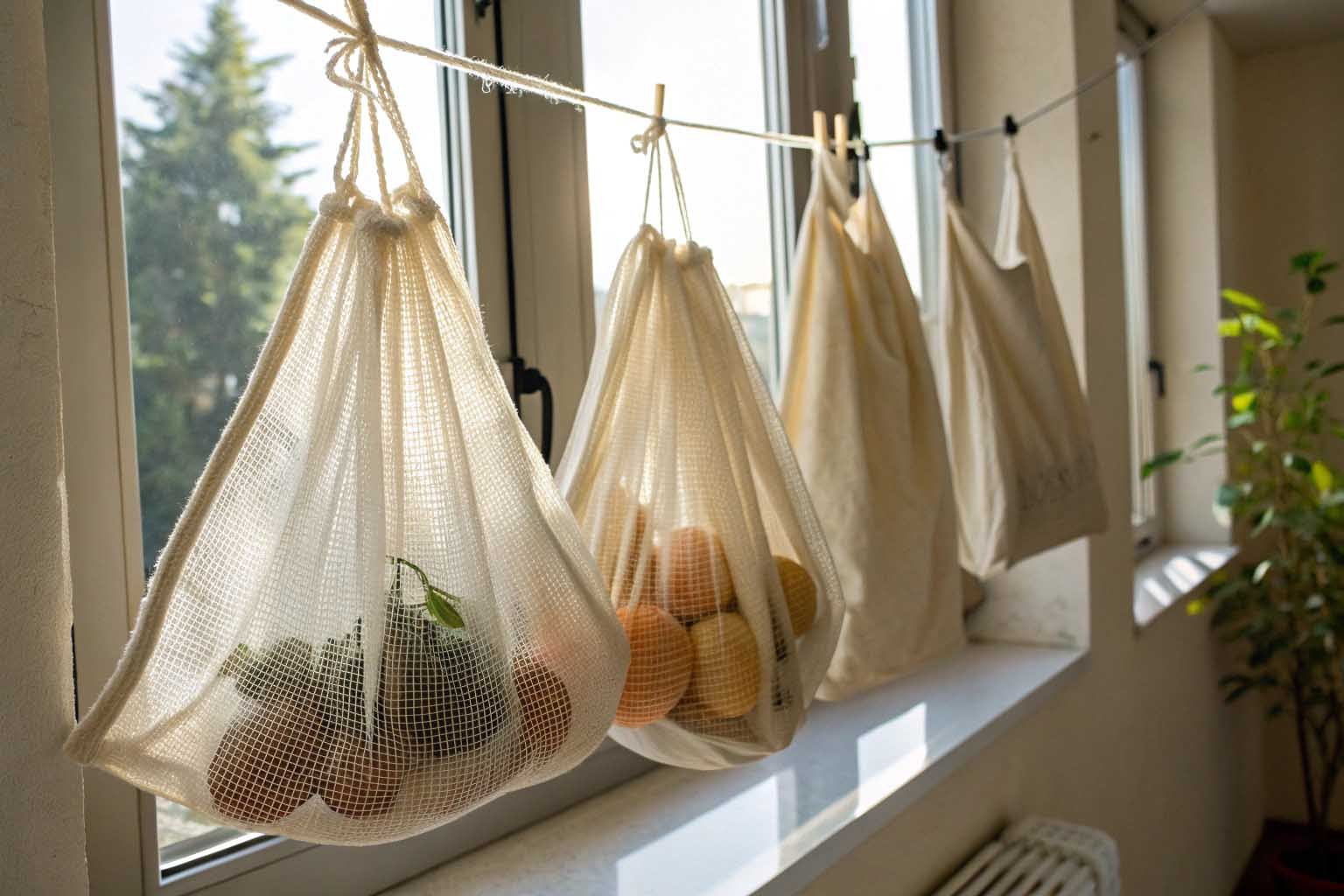
Keeping your mesh produce bags clean is essential for food safety and prevents unpleasant smells. Thankfully, it’s usually straightforward. Based on my experience handling different types for clients, here’s what I generally advise:
Cleaning Polyester Mesh Bags
Polyester is pretty resilient.
- Machine Wash: Most can handle a regular or gentle cycle with cold or warm water. Using a laundry bag can prevent snagging on zippers or hooks from other clothes.
- Drying: You can often tumble dry them on low heat, but air drying is always the safest bet to prolong their life. They dry very quickly because the material doesn’t hold much water.
Cleaning Cotton Mesh Bags
Cotton needs a bit more care.
- Machine Wash: Use a cold water, gentle cycle to minimize shrinking.
- Drying: Always air dry cotton mesh bags. Putting them in a machine dryer can cause significant shrinkage. Hang them up or lay them flat.
General Maintenance Tips
- Frequency: Wash bags whenever they look dirty or after carrying particularly messy produce (like leaky tomatoes or dusty potatoes). Washing after every couple of shopping trips is a good habit.
- Stains & Smells: If bags develop stains or odors (like from onions), pre-soaking them in a mixture of water and vinegar or baking soda before washing can help.
- Durability: Quality matters here. Bags with strong stitching and reinforced drawstring channels, which are common features clients specify, tend to hold up better through repeated washes.
Regular, simple cleaning ensures your mesh bags stay fresh and ready for your next grocery run. It’s a small step that keeps them hygienic and extends their usable life.
What common problems might arise with mesh produce bags?
Switching from plastic to reusable mesh bags is a great step, but new habits can sometimes bring small, unexpected hassles. You want your eco-friendly choice to be convenient, not annoying. Let’s anticipate some potential minor issues.
Common hiccups include cashiers needing to deduct the bag’s weight (tare), potential for the mesh snagging, simply forgetting to bring them, and certain produce items drying out too fast. The quality and material also impact how long they last.
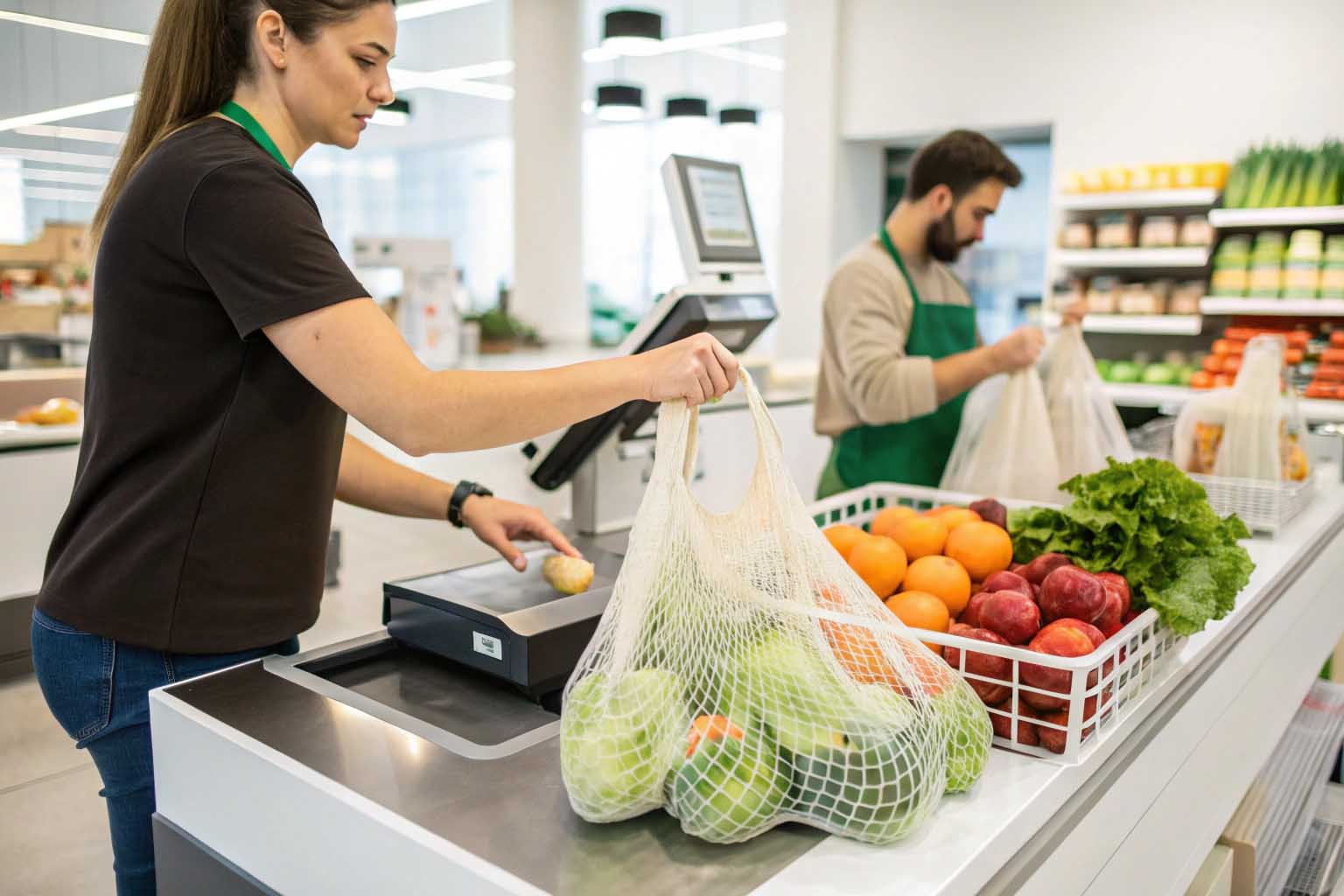
While mesh bags are fantastic overall, being aware of potential minor drawbacks helps you use them more effectively. I’ve seen these issues come up in conversations:
Tackling Common Issues
- Tare Weight: This used to be a bigger deal. Now, many mesh bags come with a small tag listing the bag’s weight (tare), which the cashier can subtract. Alternatively, cashiers can place the bag on the scale first to zero it out. It’s rarely a significant issue today, but good to be aware of.
- Snagging: Lower quality mesh, especially very fine polyester, can sometimes snag on sharp objects or even rough parts of a shopping cart. Choosing well-made bags with durable stitching helps minimize this. Cotton mesh might be less prone to sharp snags but can still wear out over time.
- Forgetting Them: This is probably the most common issue with any reusable bag! My best tip? Store your mesh produce bags inside your larger reusable grocery bags, and keep those grocery bags in your car or near your front door so you grab them automatically.
- Produce Drying Out: As discussed earlier, super breathable mesh isn’t ideal for leafy greens or herbs on its own. Knowing which produce needs different storage helps avoid disappointment.
- Customization & Practicality: When clients order bags, practical features are key. Selling them in sets (L/M/S sizes are standard) helps shoppers organize. Different colored edging or labels often distinguish sizes quickly. Some clients even ask for a patch to write purchase dates on – a neat idea for tracking freshness! These details show how bags are adapted for real-world use.
These are mostly small things that are easy to manage once you expect them. Choosing quality bags and developing the habit of bringing them makes the experience smooth and worthwhile.
Mesh Produce Bags: Pros vs. Cons Summary
Here’s a quick look at the main advantages and disadvantages we’ve discussed:
| Pros | Cons |
|---|---|
| Reduces single-use plastic waste | Requires regular washing |
| Reusable & often durable | Can cause some produce (leafy greens) to wilt |
| Breathable, keeps some produce fresh | Potential for snagging (material dependent) |
| Lightweight and easy to carry | Need to remember to bring them |
| Generally easy to wash & maintain | Initial cost higher than single-use bags |
| Versatile for storage & organization | Tare weight consideration at checkout (minor) |
| Supports zero-waste habits | Eco-impact varies by material (Cotton vs. Poly) |
| Can be customized | Cotton versions may shrink or wear faster |
Conclusion
So, mesh produce bags? They’re a solid choice for reducing plastic waste and often keep produce fresher. Just remember to wash them and know they work best for certain items.


